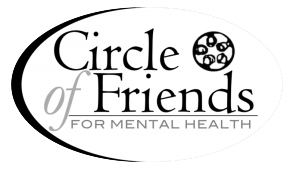Our founder-Carolyn Hale
Carolyn Hale - Founder & Former President
Carolyn received a BS in Early Childhood Education at the University of Maryland, and an MA in Education from the University of Washington. She is a vibrant teacher and entrepreneur, and was recently named Woman of the Year by the National Association of Professional Women in New York City for her years of dedicated service within the mental health field. She founded Circle of Friends for Mental Health in 2002, and has directed all projects and operations at Circle of Friends for the past 15 years.
Carolyn had visited her son Seth at a local community psychiatric clinic nearly every afternoon since his diagnosis of schizophrenia. Thankful for the community that had embraced and cared for her son so lovingly despite very limited resources, she asked the facility director “How could I help?”
The response surprised her: the residents wanted to give holiday gifts to their family members, to participate in the joyous festivities of the season, yet lacked the resources to do so. She thought “Well, I thought, I suppose we could help them make gifts!”
That year, along with a small group of friends and local artists, they threw a gift-making parties at three different mental health facilities in the Seattle area. By all measures the events were unprecedented successes. She thought, Art and friendship help!
In the past 15 years, Circle of Friends has connected hundreds of volunteer art teachers to hundreds of individuals living at different mental health and homeless facilities throughout the Seattle area. There are always laughs and thoughts about the classes. Over the years our staff has received statements from our volunteer teachers and participants, here are a few:
“Making art is like cooking, you put the ingredients together, something beautiful comes out”-Marlon, a participant
“I had so much fun…favorite moments in my college career. Thanks for the opportunity.” Holly
“I’ve made a friend”-a participant
Through the art, friendship and awareness building, the participant was able to express their reality, and had the opportunity to externalize that pain in a supportive, non-judgemental environment.


